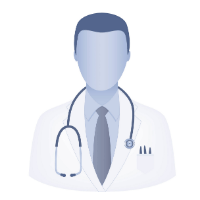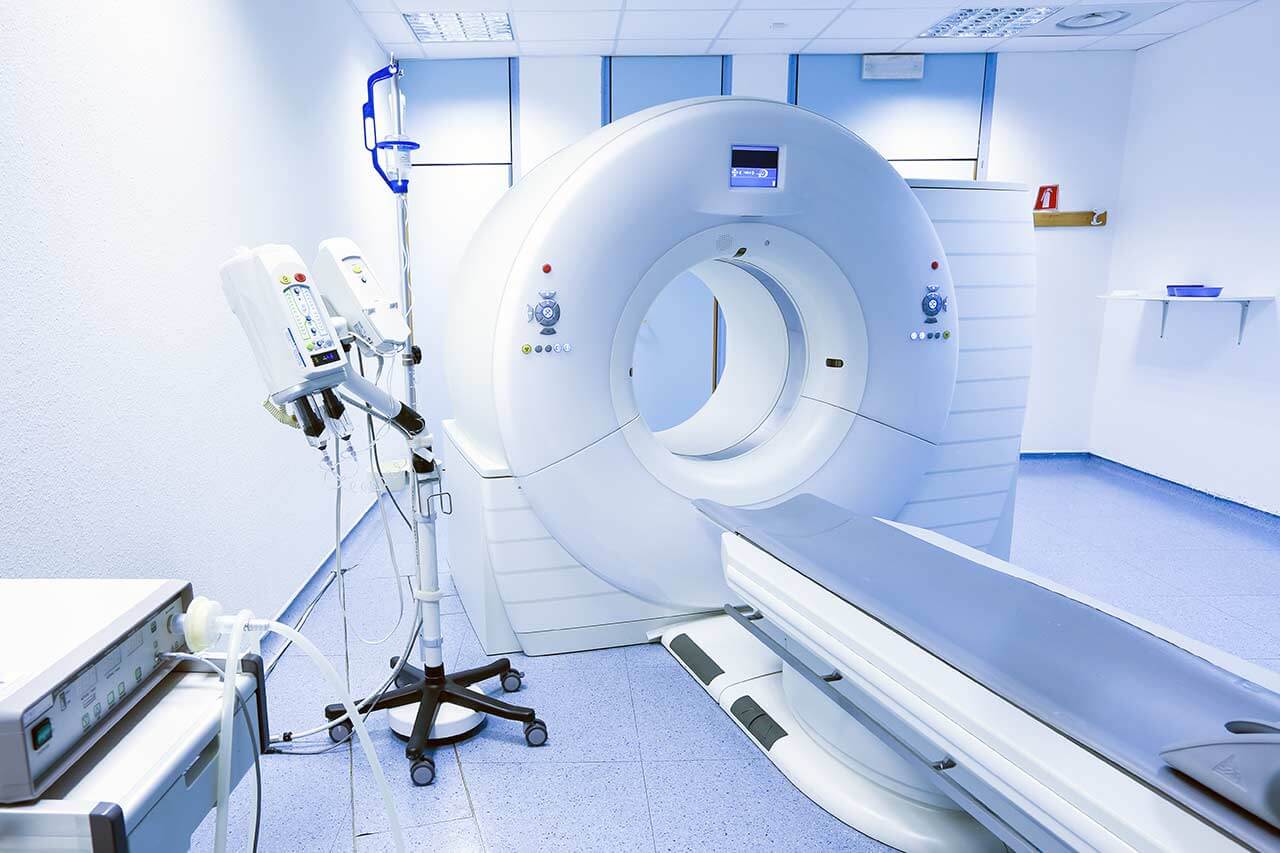
The program includes:
- Initial presentation in the clinic
- clinical history taking
- review of medical records
- physical examination
- laboratory tests:
- complete blood count
- general urine analysis
- biochemical analysis of blood
- TSH-basal, fT3, fT4
- tumor markers
- inflammation indicators
- indicators of blood coagulation
- orbital ultrasound scan
- CT / MRI / X-ray scan of the head and orbit
- 1 course of chemotherapy
- nursing services
- consultations of related specialists
- explanation of individual treatment plan
How program is carried out
During the first visit, the doctor will conduct a clinical examination and go through the results of previous laboratory tests and instrumental examinations. After that, you will undergo an additional examination, including laboratory assessment of liver and kidney function, ultrasound scan. Based on the received results, the doctor will elaborate the chemotherapy regimen. If necessary, related medical specialists will be involved in the elaboration of a treatment regimen (tumor board).
Chemotherapy is carried out as the day hospital procedure, without mandatory admission to the hospital. After the placement of a venous catheter, you will stay in a comfortable ward. An infusion system will be connected to the catheter, through which the required drug or a drug combination will be administered. All drugs are administered by intravenous drip, slowly, so the total duration of the infusion can be up to several hours. All this time, doctors and nurses will monitor your health condition closely.
After the course of chemotherapy, you will stay under medical supervision in the ward for a few more hours. If your general condition is good, your doctor will allow you to leave the hospital. You will receive the medical report with detailed recommendations regarding further treatment. In the future, you will be able to have a distant consultation with your attending physician and schedule the next course of chemotherapy, if necessary.
Required documents
- Medical records
- MRI/CT scan (not older than 3 months)
- Biopsy results (if available)
Service
You may also book:
 BookingHealth Price from:
BookingHealth Price from:
About the department
The Department of Pediatric Oncology, Hematology, Immunology and Pulmonology at the University Hospital Heidelberg offers the full range of services in these fields and specializes in the treatment of children and adolescents with cancers, diseases of the blood and immune system, as well as pathologies of the lungs, respiratory tract. The department is headed by Prof. Dr. med. Andreas Kulozik.
The department ranks among the largest medical institutions of this kind in Germany, which offers all the modern therapeutic capabilities in these fields. The department's doctors have over 25 years of experience in bone marrow transplantation. An important focus of the department is the treatment of benign blood disorders, including anemia, blood clotting disorders, and immunodeficiencies.
In the field of oncology, the department provides the high-quality treatment, as well as the first-class follow-up care and psychological support. The treatment of young patients is carried out in close cooperation with the Departments of Pediatric Neurosurgery, Pediatric Neuroradiology, Radiation Therapy, Neuropediatrics, Pediatric Neuro-Oncology. Each clinical case is considered as part of regular tumor boards, after which an optimal treatment strategy is developed in accordance with the requirements of the Society for Pediatric Oncology and Hematology.
The service range of the department includes:
- Diagnostics and treatment of brain tumors
- Differential diagnostics and treatment of anemia in childhood (special focus on thalassemia)
- Diagnostics and treatment of blood clotting disorders
- Diagnostics and treatment of immunodeficiencies
- Ion radiotherapy (within a specialized center)
- Diagnostics and treatment of osteosarcoma
- Diagnostics and treatment of diseases of the lungs, respiratory tract
- Congenital and acquired lung diseases (for example, chronic cough, bronchitis, bronchiolitis obliterans, primary dyskinesia, bronchiectasis, pulmonary fibrosis)
- Cystic fibrosis
- Bronchial asthma
- Allergies (for example, allergies to pollen, insect venom, drugs, urticaria, acute allergic reactions)
- Eczema / atopic eczema
- Infections (for example, infections with immunodeficiency and tuberculosis)
- Vaccination issues
- Other medical services
Curriculum vitae
Professional Career
- 1978 - 1984 Study of Human Medicine at the Universities of Muenster and Glasgow.
- 1984 Admission to medical practice.
- 1985 Doctoral thesis defense (Doctor of Medicine) at the University of Muenster.
- 1987 Doctor of Philosophy, Department of Molecular Hematology (MRC), University of Oxford, UK.
- 1987 - 1993 Advanced training in Pediatrics, Department of Pediatrics at the University Hospital Ulm.
- 1993 Habilitation and Venia Legendi in Pediatrics.
- 1994 - 1996 Senior Physician, Department of Pediatrics, Charite University Hospital, Berlin.
- 1996 - 2001 University Professor, Pediatrics, Charite University Hospital, Berlin, as well as the Deputy Head in the Department of General Pediatrics.
- Since 12.2001 Head of the Department of Pediatric Oncology, Hematology, Immunology and Pulmonology at the University Hospital Heidelberg.
- Since 02.2002, Co-Director of the Molecular Medicine Partnership Unit (MMPU).
Clinical Qualifications
- Medical Specialist in Pediatrics and Adolescent Medicine.
- Specialization in Pediatric Hematology and Oncology.
- Pediatric Intensive Care.
- Pediatric Pulmonology.
Scientific Awards and Honors
- 1987 Young Investigator Prize of the British Society for Hematology.
- 1993 Adalbert Czerny Prize of the German Society of Pediatrics.
- 1994 Merckle Research Prize, University of Ulm.
- 2005 Elected Member of the European Molecular Biology Organization (EMBO), University of Ulm.
- 2007 Manfred Lautenschläger Research Prize.
- 2011 Elected Member of the German National Academy of Sciences Leopoldina.
Photo: (с) depositphotos
About hospital
According to Focus magazine, the University Hospital Heidelberg ranks among the top five hospitals in Germany!
The hospital is one of the most advanced and reputable medical institutions not only in Germany but throughout Europe. There are more than 43 specialized departments and 13 medical institutes which cover all fields of modern medicine. A distinctive feature of the hospital is the presence of unique therapeutic methods for the treatment of complex and rare clinical cases.
Due to successful clinical practice, the hospital has been holding leading positions in the international medical arena for many years. The basis for this popularity is the combination of the very latest technologies, competent specialists, and active research activities, which allows introducing of revolutionary diagnostic and treatment methods, which save lives.
In addition to the outstanding medical achievements, it is worth noting a particularly friendly and pleasant atmosphere, and respectful attitude towards the patient. Both doctors and nursing staff make every effort to meet all the needs and wishes of the patient, pay due attention to each clinical case, and have personal communication with the patient, which contributes to a positive treatment result.
Photo: (с) depositphotos
Accommodation in hospital
Patients rooms
The patients of the University Hospital Heidelberg live in comfortable single and double rooms designed in bright colors. Each room is equipped with an ensuite bathroom with a shower and toilet. The patient rooms are quite spacious, they have a table with chairs for receiving visitors. Roomy wardrobes are provided for storing personal belongings. It is possible to connect to the Internet. In addition, the hospital offers enhanced-comfort rooms with a safe, refrigerator, and upholstered furniture. Patients have 24-hour access to the services of medical personnel.
Meals and Menus
The patient and his accompanying person have a daily choice of three menus. If you for some reason do not eat all the products, you will be offered an individual menu. Please inform the medical staff about your dietary preferences prior to the treatment.
Further details
Standard rooms include:
Religion
The religious services are available upon request.
Accompanying person
During the inpatient program, an accompanying person may stay with you in a room or hotel of your choice.
Hotel
During the outpatient program, you may live in a hotel of your choice. The managers will help you choose the most suitable options.
The hospital offers a full range of laboratory tests (general, hormonal, tests for infections, antibodies, tumor markers, etc.), genetic tests, various modifications of ultrasound scans, CT scans, MRI and PET / CT, angiography, myelography, biopsy and other examinations. Treatment with medications, endoscopic and robotic operations, stereotaxic interventions is carried out here, modern types of radiation therapy are also used. The hospital offers patients all the necessary therapeutic techniques.
- Endovascular treatment of liver pathologies with LigaSureTM, Ultracision® and Habib®-Sealer devices
- Correction of chest deformities in children (Nass operation)
- Minimally invasive direct coronary artery bypass grafting
- Replacement of ascending aorta (David procedure)
- Operations using the da Vinci robotic system
These are primary lung tumors and metastases in the lungs, benign and malignant liver pathologies, thyroid pathologies, gastroesophageal reflux disease, heart rhythm disturbances and heart failure, infertility, fibromyalgia, damages and pathologies of large joints, polyneuropathy and other diseases.
- Thoracic surgery
- Cardiac surgery
- Urology
- Orthopedics and traumatology
- Obstetrics and gynecology
The hospital's team consists of more than 13,000 highly qualified employees




